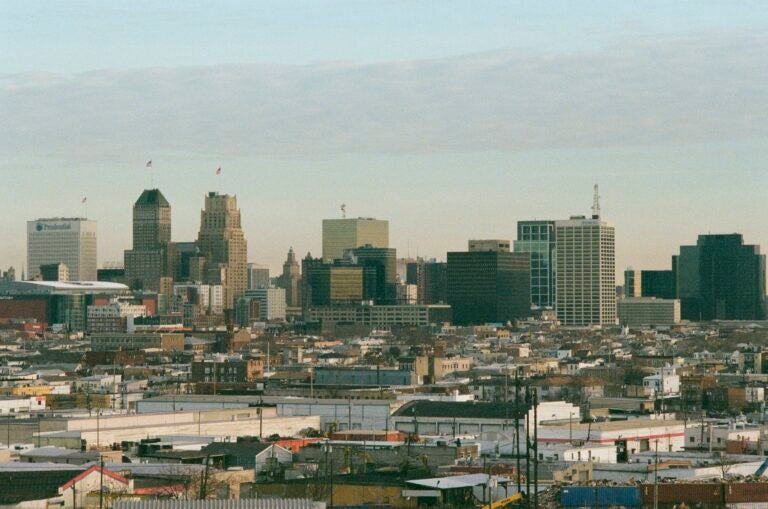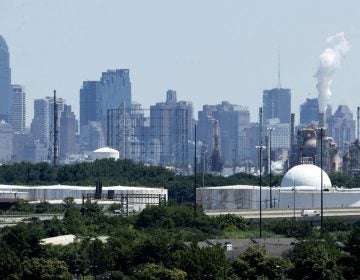Murphy announces support for N.J. environmental justice bill
The legislation would consider environmental burdens on New Jersey communities when viewing permit applications.

File photo: Newark, New Jersey skyline at dawn, March 18, 2018. (Photo by Smith Collection/Gado/Sipa USA)(Sipa via AP Images)
New Jersey Gov. Phil Murphy announced Friday he supports a bill that would force applicants filing for environmental permits to take into account their impact on nearby low-income and marginalized communities.
The Democrat said it would be the strongest such law in the country.
“Some will look at what we’re championing here today and wonder why all the fuss for what is at its heart a bureaucratic action,” Murphy said. “But it is the seemingly small acts of government that can have huge impacts.”
Environmental justice advocates say low-income communities of color often suffer the worst health effects of pollution and other industrial damage.
The legislation requires permit applicants to draft an environmental justice impact statement that explains the consequences their project would have on neighboring “overburdened communities.”
It also would allow the state Department of Environmental Protection to reject an application if the project might cause harm to those communities.
“In many ways, this has been the Holy Grail for the environmental justice movement,” said Nicky Sheats, with the New Jersey Environmental Justice Alliance.
The Senate Environment and Energy Committee approved the legislation in January, but it has not had a full vote in the full Senate. An identical bill in the Assembly has yet to have a hearing.
An “overburdened community” defined by the bill is any U.S. Census block where at least half of households are low-income and at least 40% are Black, Latino, members of a state-recognized tribal community or have limited English proficiency.
State Sen. Troy Singleton, D-Burlington, who sponsored the legislation, said even though the bill has been around in some form since 2008, it is garnering more momentum now as the country sees mass protests over racial injustice.
“Issues like this often find their moment in history, and right now we find that it is the confluence of a lot of factors that have placed this issue of environmental justice more at the forefront than perhaps it has been in the past,” Singleton said.

Get daily updates from WHYY News!
WHYY is your source for fact-based, in-depth journalism and information. As a nonprofit organization, we rely on financial support from readers like you. Please give today.





